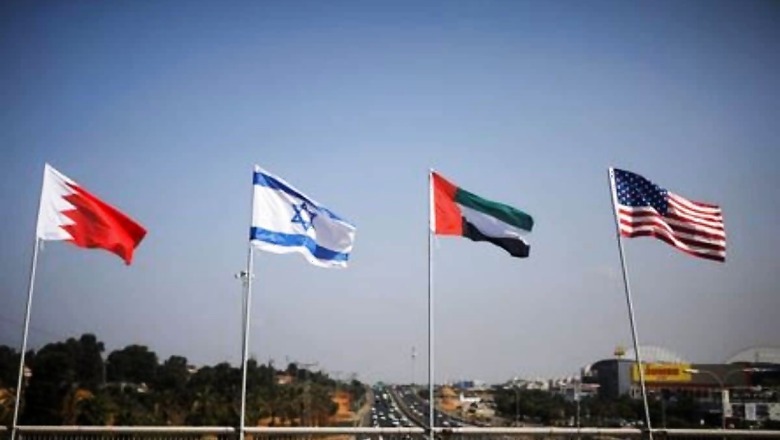
views
The United Arab Emirates didn’t need peace with Israel to counter Iran, a top UAE official said Friday, but he said Iran’s aggressive policies over three decades alarmed many Arab countries and made them look at their relationship with Israel with fresh eyes.
Anwar Gargash, the UAEs minister of state for foreign affairs, acknowledged at a virtual briefing on the sidelines of the equally virtual U.N. General Assemblys annual meeting of world leaders that this may not have been Irans intention. But its actions had an impact in the region, he said, though he wouldnt speculate on whether other Arab countries would follow the UAE and Bahrain in establishing relations with Israel.
The only thing I want to say is the more strategic the Israelis look at these relationships, the more doors will open to them, Gargash said. If they look at it very `transactionally’, I think that it is not going to send a very good omen for normalizing relations with many of the Arab countries.
Gargash said the UAEs message to Israel is to look at these opportunities and build strategically, and think long term rather than short term and prove wrong the countries who say that because of the Israeli political system its decision-makers think only tactically.
A month after the U.S.-brokered diplomatic agreement with Israel signed at the White House, Gargash said the two countries are negotiating what I would call normal bilateral relations. He said the UAE has sent several agreements to the Israelis on protecting investments, double taxation, visa exemptions and air services.
“Were waiting for them to come back to us, because it is essential for a relationship to be built on these solid bases, Gargash said.
Looking back at the UAE’s decision to normalize relations with Israel, Gargash said the government decided it was strategically good for the country, and will make the UAE more of a global presence.”
The government also predicted the reaction very accurately enthusiasm in Europe, bipartisan support in the United States and support from Russia and China and many other countries in Africa and Asia, he said.
But the Arab world and the region remain polarized, Gargash said, though I would like to say we havent lost a single friend.
The UAE minister called the Iranian reaction very alarming.” And he called Turkeys opposition to the agreement pure hypocrisy, accusing Ankara of trying to take advantage of the Palestinian plight for narrow regional considerations. He noted that 550,000 Israelis visited Turkey last year, that the countries do about $3 billion in trade annually, and that Turkey has had an embassy in Israel for decades.
Palestinian President Mahmoud Abbas criticized the UAE and Bahrain for establishing diplomatic ties with Israel in his prerecorded speech to the General Assembly later Friday and called for an international conference early next year to launch a genuine peace process.
The UAE expected Palestinian opposition, Gargash said, adding that he thinks they’re sulking right now.
He said the UAE still supports the two-state solution and an end to Israeli occupation and disagrees with Israeli Prime Minister Benjamin Netanyahus government politically.
But we need to open channels of communications because the Arab experience of having no communication with Israel has not really yielded any results, Gargash said.
Gargash said he believes the actions of the two Gulf nations bring a new dynamism to the Israeli-Palestinian situation.
The Palestinians right now are angry, but I think they will see the benefit in the medium term,” he said,.


















Comments
0 comment